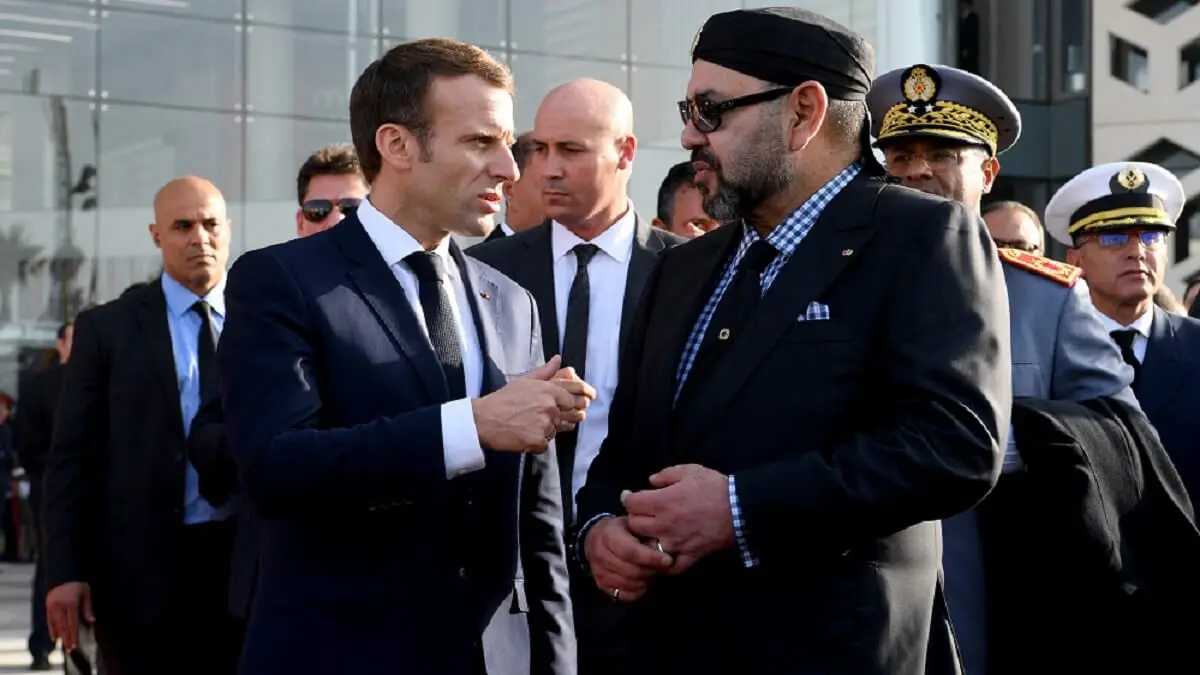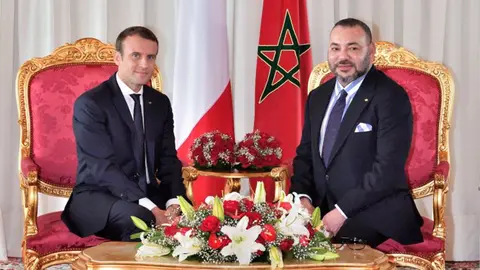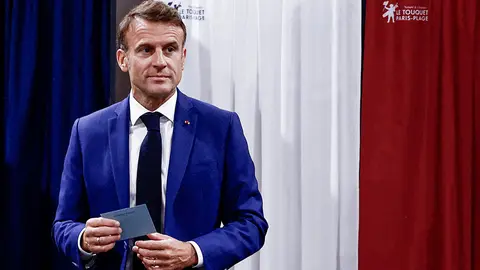Autonomy and sovereignty over the Sahara: two concepts on the same basis

If their intention was to weaken and dilute the announcement that would be made days later, they achieved the opposite. As if that were not enough, it was the Algerians themselves who were the first to pronounce the expression ‘France's unequivocal and unconditional support for the autonomy plan for Western Sahara within the framework of Moroccan sovereignty’. Of course, we must thank them for their diligence in keeping us informed.
The fact is that France had already been counted well before as one of the dozens of countries supporting the Moroccan autonomy proposal, which in the EU has reached 18 countries after the recent support of Finland. In fact, France is one of the countries that has been most vocal on this issue. It is no coincidence that, if we go back through the archives, there is a whole chronology that testifies to the evolution of the French position on the autonomy plan for the Sahara, which has gradually become more and more favourable.
- In 2007, when Morocco presented its autonomy proposal, France described it as a ‘serious and credible basis’ for negotiations. Indeed, it was Nicolas Sarkozy himself who first spoke out in his capacity as president, declaring that ‘the autonomy plan is a negotiating basis for the search for a reasonable agreement’, adding that he took this issue as ‘his responsibility as head of state’.
- In 2019, then foreign minister Jean-Yves Le Drian reiterated French support for a political solution based on compromise, citing the Moroccan plan as a ‘serious and credible’ proposal.
- In October 2021, France's permanent representative to the UN, Nicolas de Rivière, told Security Council members after the adoption of Resolution 2602 that ‘France considers the 2007 Moroccan autonomy plan as a serious and credible basis’ for the resolution of this conflict.
- In 2022, on as many as two occasions, then Foreign Minister Catherine Colonna expressed France's support for Morocco's ‘serious and credible efforts. As for Morocco's autonomy plan, our position is favourable’.
- More recently, throughout 2024 and on more than one occasion, the current French foreign minister, Stéphane Séjourné, has spoken out in favour of the proposal, going so far as to say that ‘it is time to move forward with its solution’.
In the chronology above, we see various public statements made by French authorities such as a former president, foreign ministers and even a representative at the UN. On this last and definitive occasion a few weeks ago, President Macron declared that ‘for France, autonomy under Moroccan sovereignty is the framework in which this question must be resolved’, adding that ‘the present and the future of Western Sahara are part of Moroccan sovereignty’.
So, if France's recent declaration is also linked to the autonomy plan, should France's recognition of sovereignty be emphasised so much if the solution would also be through autonomy, which they had previously supported, and which was also already being supported by dozens of countries?
One might think that words matter and, in this context, adding the term ‘sovereignty’ carries a lot of weight. But beyond this, the answer is simpler than it seems, and we find it in point 2 of the text of the 2007 autonomy proposal itself, which states that ‘In response to this call from the international community, the Kingdom of Morocco has entered into a positive and constructive dynamic, committing itself to submitting an initiative for the negotiation of an autonomy statute for the Sahara region, WITHIN THE FRAMEWORK OF THE SOVEREIGNTY OF THE KINGDOM AND ITS NATIONAL UNITY’. Reference is also made to this in point number 14, where it says that "The State shall retain exclusive competence, particularly over: THE ATTRIBUTES OF SOVEREIGNTY, especially the flag, the national anthem and the currency (...)’.
In other words, from the moment that any country, whatever it may be, supports the autonomy proposal for the Sahara, it is explicitly or implicitly supporting the recognition of Morocco's sovereignty over the territory, because the text of the proposal makes it very clear that autonomy will ALWAYS be under Moroccan sovereignty. The fact that France on this occasion has added the phrase ‘sovereignty’ more explicitly in its umpteenth declaration in favour of Morocco only gives it greater symbolic weight, adding declarative force and importance, but in practice does not place it in a position of greater pre-eminence in this respect than other countries that also support Morocco in this matter, such as Spain, Germany, etc. The above is a nuance that a priori should not be necessary, but it is not superfluous in view of the repercussions of the recent French declaration.
What does make a difference with respect to other countries is the importance of the country making the declaration, in this case the importance of France. Also in that it has been directly through its president, Emmanuel Macron (some of the countries that declared their support for the autonomy proposal did so through their foreign ministers). It should also be noted that Morocco's negotiating position is strengthened, as it now has the explicit support of two permanent members of the UN Security Council (the US and France), which could be increased to three if the UK joins the proposal in the near future. Thus, France's diplomatic weight as a permanent member of the Security Council gives this statement a special relevance.
And, above all, because of the key moment at which this endorsement has come, in the midst of a wave of support for the proposal for autonomy (especially from the EU) and the opening of consulates within the territory. An almost definitive blow to the unfulfillable desires of the Polisario and its Algerian protector, and due to which they have been dragging their population for almost half a century on an eternal journey to nowhere through an infinite stalemate from which, in the meantime, only they as leaders benefit.
Undoubtedly, the Moroccan autonomy plan for the Sahara offers numerous benefits that Algeria and the Polisario Front have systematically disregarded due to spurious interests. Among many other things, it provides a framework for the economic and social development of the Sahara, allowing its inhabitants to benefit from the investments and economic growth that Morocco has experienced. It also guarantees the cultural and political rights of the Saharawis, allowing them to manage their own internal affairs while being integrated into Morocco's economic and social fabric.
This approach is not only beneficial for the Saharawis, but also contributes to regional stability. A prosperous and peaceful Moroccan Sahara is a bulwark against the extremism and terrorism that threaten the Sahel region. The stability of the area is therefore of strategic interest to Europe and the world. Around 100 countries are already clear about the winning solution. A list that is sure to grow out of sheer common sense.



